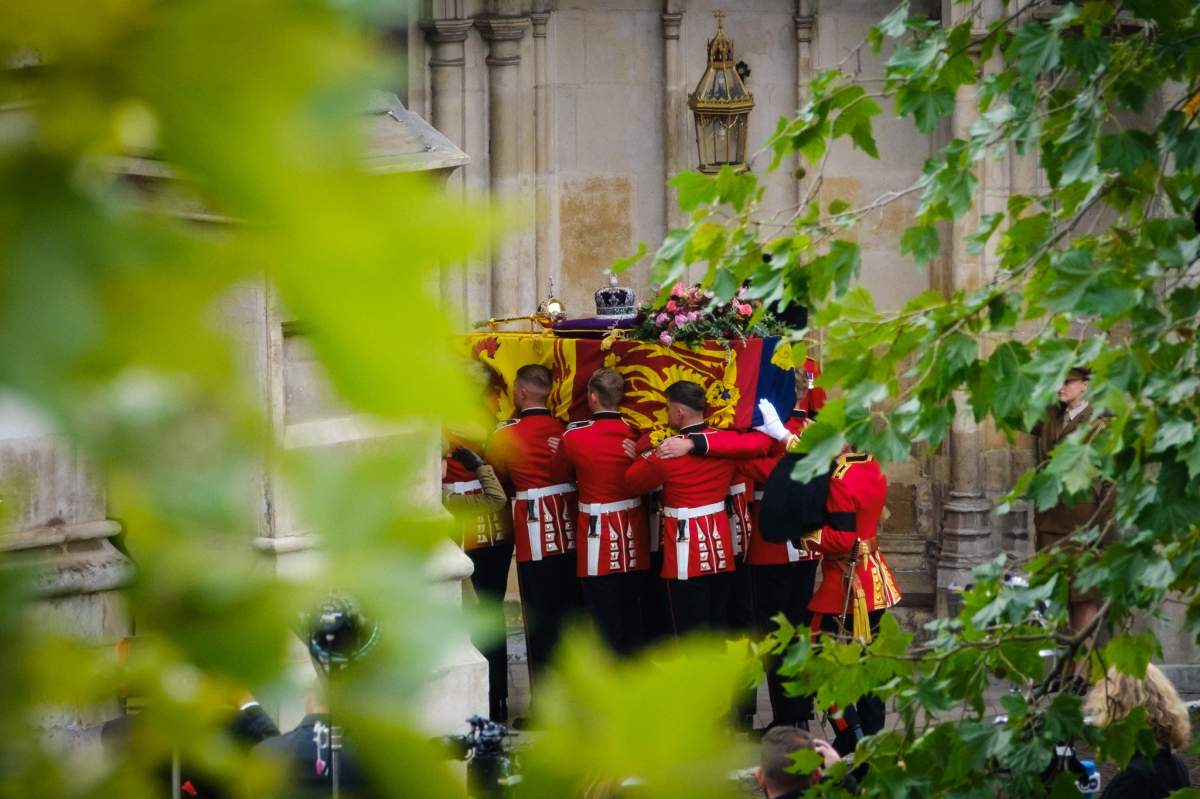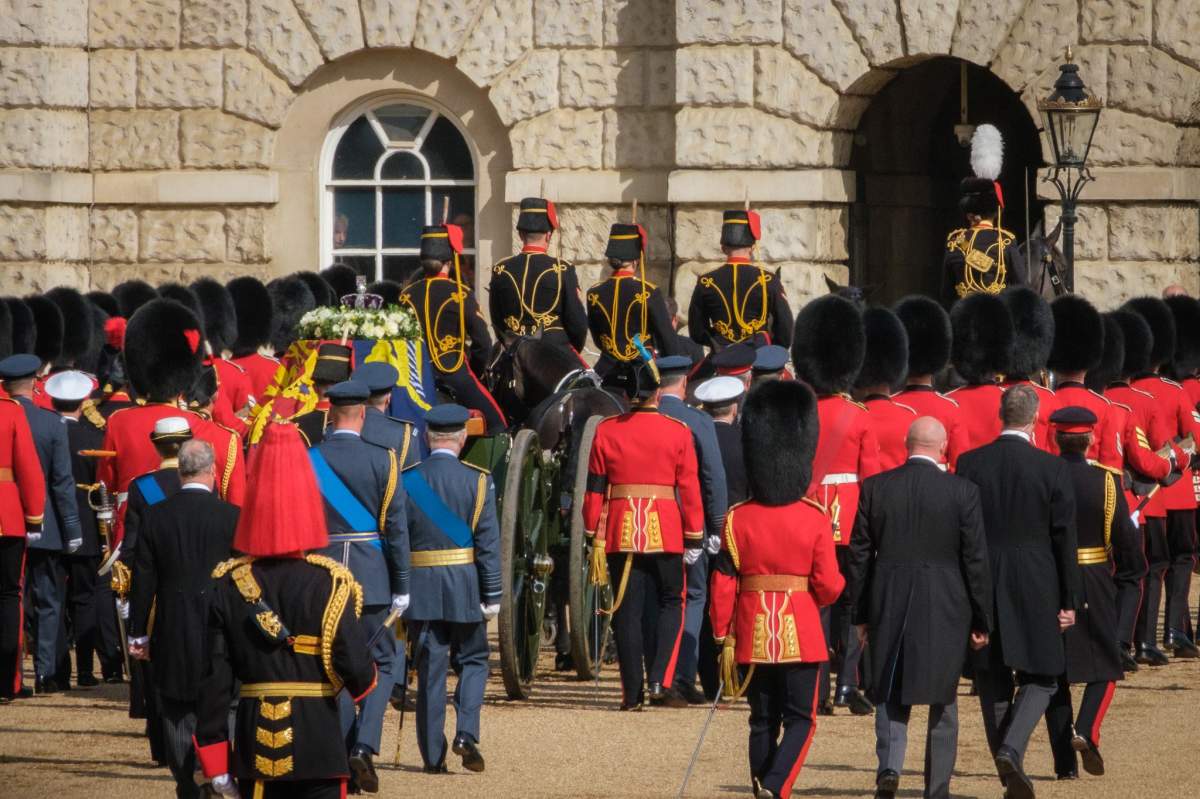It is the day after a right royal send-off for an incomparable queen, and it feels like something in London is missing.

Sept. 8, the day Queen Elizabeth II died, marked the end of the second Elizabethan era.
Her state funeral on Monday, so rich in pageantry, beauty, ceremony and soaring music, made it all final, especially as the Imperial State Crown she wore at her coronation was removed from the top of her coffin along with the orb and the sceptre. Her sovereignty over, the world watched her coffin sink gently into the royal vault at St. George’s Chapel in Windsor Castle.
The manner of her farewell matched the grace and gentle tone of her long reign. All the more remarkable, she was a woman who was not born to be queen, but who through a series of unexpected family events, became queen. Through her strength of character, she forged her way as a young woman in a world dominated by men in positions of power. Who else alive today could command the flood of love and respect she was shown this past week and stir so much collective depth of feeling?
The crowds are gone now and the multitude of floral tributes are being cleared away. Life is going on, which is precisely what the queen would have expected. She was about evolution, not revolution. This was a woman who was crowned when Winston Churchill was prime minister. She grew up in a city and a country where the past is everywhere and she was expected to keep the connection to history alive, yet make the monarchy “modern” and “relevant.”

Get breaking National news
After all, the royal story is not just fodder for Netflix, it’s a huge draw for tourism and pumps hundreds of millions of pounds into the U.K. economy every year.
The idea of inherited titles and waiting for your mother to die so you can take over her job seems not only a bit odd to those of us outside royal circles, but out of place in modern times. And there is no question a whole host of people do not feel a deep connection to the monarchy.
In the days before the funeral, I met a man while having my morning coffee who said he was born in Uganda and has lived in London for years. “The queen was from another world, not my world,” he told me. Still, he said her death makes him feel sad because she’s been there his entire life.
It’s that loss of something enduring that seems to hit people. So many things in life are fleeting these days. The queen was a constant. The flight attendant on my plane to London, a man in his 30s, told me the presence of the queen felt like a blanket wrapped around the nation. His eight-year-old niece, he said, was in tears when she heard the news. When we landed, he intended to go to Buckingham Palace and Windsor Castle to pay his respects.
A mother and son from Lancashire whom I chatted with near Westminster Abbey said they wanted to pay their respects too. They told me they feel a great sense of loss, and believe the monarchy needs to continue.
“It gives this country a sense of stability,” the son told me. “She was always there in times of crisis and hardship, in a way that our political leaders are not.”

They pointed to the special message the queen delivered in April 2020 in the early stages of the pandemic. She praised the nation’s spirit and recognized the painful separation from loved ones. She seemed to channel exactly what people were going through and said the crisis could be overcome if people remained strong and resolute.
Her address began: “I am speaking to you at what I know is an increasingly challenging time … a time that has brought grief to some, financial difficulties to many, and enormous changes to the daily lives of us all.” It evoked the wartime spirit she witnessed as a girl during the Second World War. “We will be with our friends again. We will be with our families again. We will meet again,” the queen reassured.
She had a knack for connecting with people that politicians must envy. As the Dean of Windsor, the Right Reverend David Connor said in his final bidding at her committal service: “In the midst of our rapidly changing and frequently troubled world, her calm and dignified presence has given us confidence to face the future, as she did, with courage and with hope. …. We pray that God will give us grace to honour her memory by following her example.”










Comments
Want to discuss? Please read our Commenting Policy first.